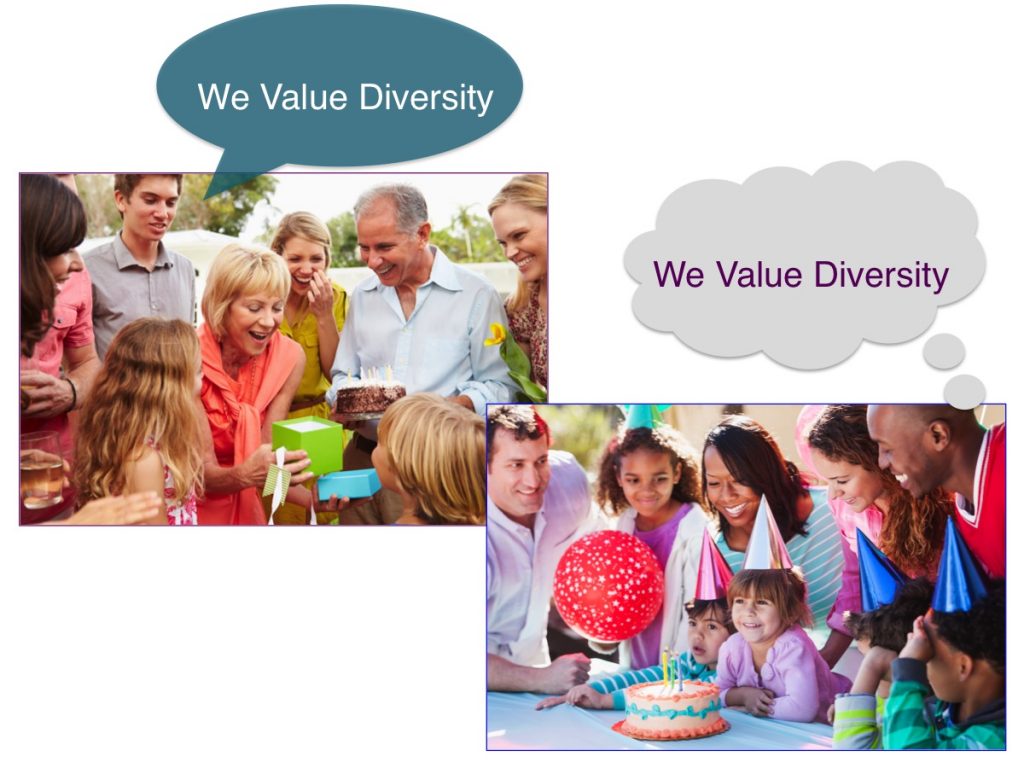
As children develop their own understanding and experiences of race, parents’ messages matter. These messages come through not only in our words but also in our behaviors. Parents express implicit racial attitudes in subtle and often unconscious behaviors. These implicit reactions matter a good deal for children’s own experiences with race. Researchers asked parents what they say about race to their children. Then they asked the children what their parents say about race. The researchers found little consistency between the two reports. In fact what parents think they say to their children about race does not strongly predict children’s own racial attitudes. But, what parents do – or don’t do – is often a much stronger indicator of children’s attitudes about race. This is because children pick up on their parents’ nonverbal social cues about race. For example, what if parents say that diversity is important. We should be friends with all different people, for example. But in practice, they only have friends that represent a single racial or ethnic group. Children notice and pick up on that inconsistency.